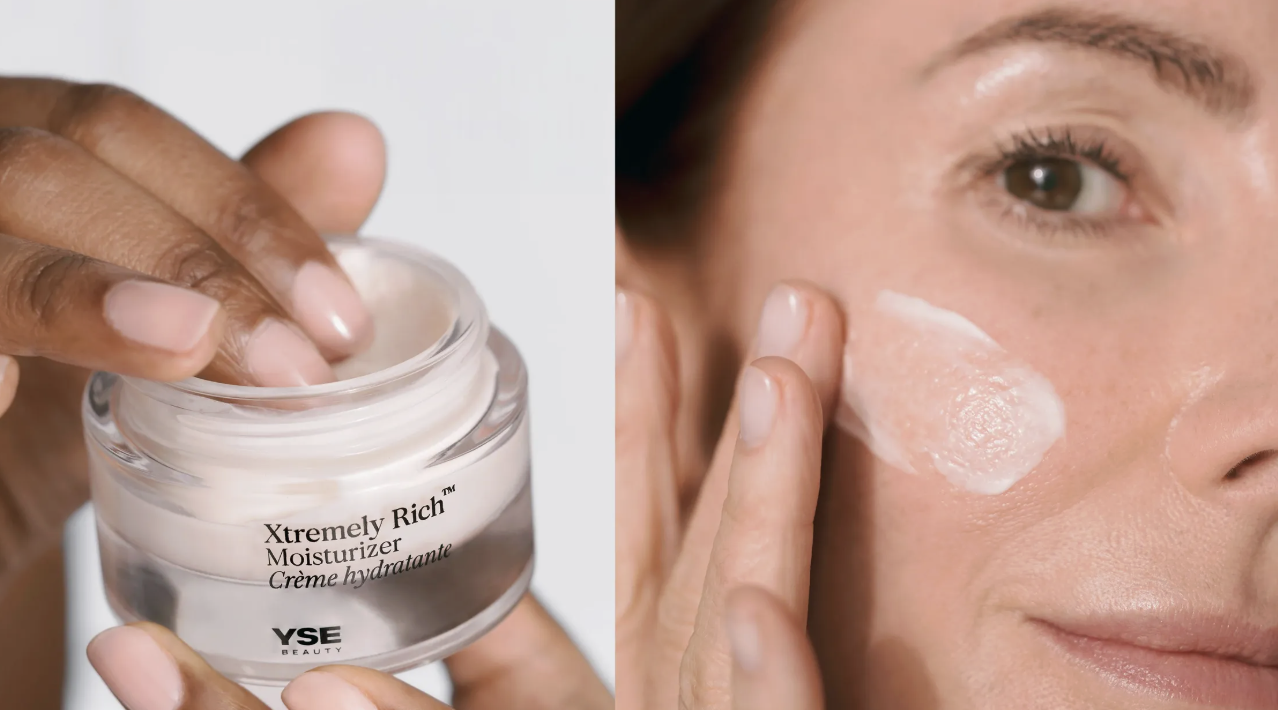Ryan Turner, MD, a board-certified dermatologist at Turner Dermatology in NYC and founder of TRNR Skin, is a big fan of this face cream for sensitive skin. “[It] features three different lipids (cholesterol, fatty acids, and ceramides) to fortify the skin barrier, helping to prevent transepidermal water loss and irritation from external factors, making it an ideal night cream,” he says. “It has a beautiful semisolid texture that melts into skin to create a comfortable, moisturizing shield.”
Dr. Turner Featured in Harpers Bazaar "The 8 best peptide serums for plumper, healthier skin"
According to Turner, peptide serums can be used in both your morning routine and your evening routine—but the other ingredients in the formula should guide you when you work it into your lineup. "Generally, serums are lightweight and are applied first after cleansing to maximise their absorption," he adds.
Dr. Turner Featured in Harpers Bazaar "The 13 Best Drugstore Eye Creams, Ranked by Dermatologists"
Experts say drugstore eye creams have just as effective ingredients and actives (think retinol, caffeine, and vitamin C) as luxury options.“Puffiness under the eyes caused by variation in fluid retention and lymphatic flow is also a reason to choose a dedicated eye cream that contains things like caffeine or potent antioxidants like arnica or vitamin C,” board-certified dermatologist and TRNR Skin co-founder Ryan Turner tells Bazaar. “Treatment of dark circles is challenging, so look for dedicated active ingredients that focus on hyperpigmentation or fragile blood vessels.”
Dr. Turner Featured in PureWow's "What Does Collagen Do for Skin? A Dermatologist Explains"
“Collagen fibers function like a scaffold, creating the structure and strength for everything from skin, muscle and bones to tendons, ligaments and other connective tissue,” Dr. Turner adds. “With skin specifically, collagen provides your skin with support and resilience—as it deteriorates with age as well as unprotected UV exposure and other bad habits, skin becomes weaker and sags, resulting in laxity, fine lines and wrinkles.”
Beauty Independent: Skincare Trends Soaring—And Sinking—In 2025 (Ft Dr. Ryan Turner)
That “overfilled” look is on a significant decline. New York patients have historically preferred more conservative use of filler, but we’re seeing less of the overfilled facial augmentation with injectables nationwide, including in areas of the country that are known for a more “done” look. Filler remains popular and the overall use of it will continue to trend upward as more people try it, but the volume used to treat individual patients will continue to decrease in order to favor a more natural look.
Dr. Turner Featured in PureWow's "7 Things You Should Stop Doing If You Have Oily Skin"
Sunscreen is essential, no matter your skin type. “Those with oily and especially acne-prone skin may believe that unprotected sun exposure can help ‘dry out’ their skin and reduce oil production and the formation of blemishes,” Dr. Turner notes. “While sun exposure may initially cause your skin to produce less oil (and therefore fewer blemishes as well), that dehydration can send your skin’s oil production into overdrive, resulting in more shine and more blemishes.”
Allure: The Biggest Skin-Care Trends of 2025 Will Level Up Your Routine
Dr. Turner says PDRN is most effective when used as an injectable treatment or as an add-on to a topical treatment that involves breaking the skin, like microneedling or laser skin resurfacing. Rejuran, he adds, is one of the most common PDRN treatments being used in professional settings in the US, but the ingredient isn’t yet widely found in at-home products.
Women's Health Magasine: Is Chronic Inflammation Making You Look Older? Here's How To Find Out—And What You Can Do.
While many of the hallmarks of inflammaging can, in fact, be a sign of all forms of skin aging, this particular issue “is often accompanied by a simultaneous spike in skin sensitivity,” says Dr. Turner. So in addition to the more traditional signs, you may also experience “redness, irritation, dryness, and sensitivity to certain products since the skin barrier is compromised.”
InStyle: Body Polish Is What Your Dry Winter Skin Needs—Here’s How to Use It
Body polish typically includes a combination of physical granular ingredients such as salt or sugar in a moisturizing oil base,” says Ryan Turner, MD, a board-certified New York City dermatologist and co-founder of TRNR Skin. “In some cases, it may also contain chemical exfoliators such as alpha hydroxy acids, beta-hydroxy acids or fruit enzymes.
Oprah Daily: How to Build The Best Skincare Routine For You
Dry skin doesn’t produce enough oil, so it can feel tight and look dull. Other symptoms include tightness, redness, and a tendency for irritation. And unlike seasonal bouts of flakiness, “dry skin types are consistently so,” Rossi adds. Your other top skin concerns are likely fine lines and wrinkles. “Aging skin tends to be drier due to chronic environmental exposures and reduced lipid content,” says Ryan Turner, MD, a board-certified dermatologist and co-founder of TRNR Skin.














